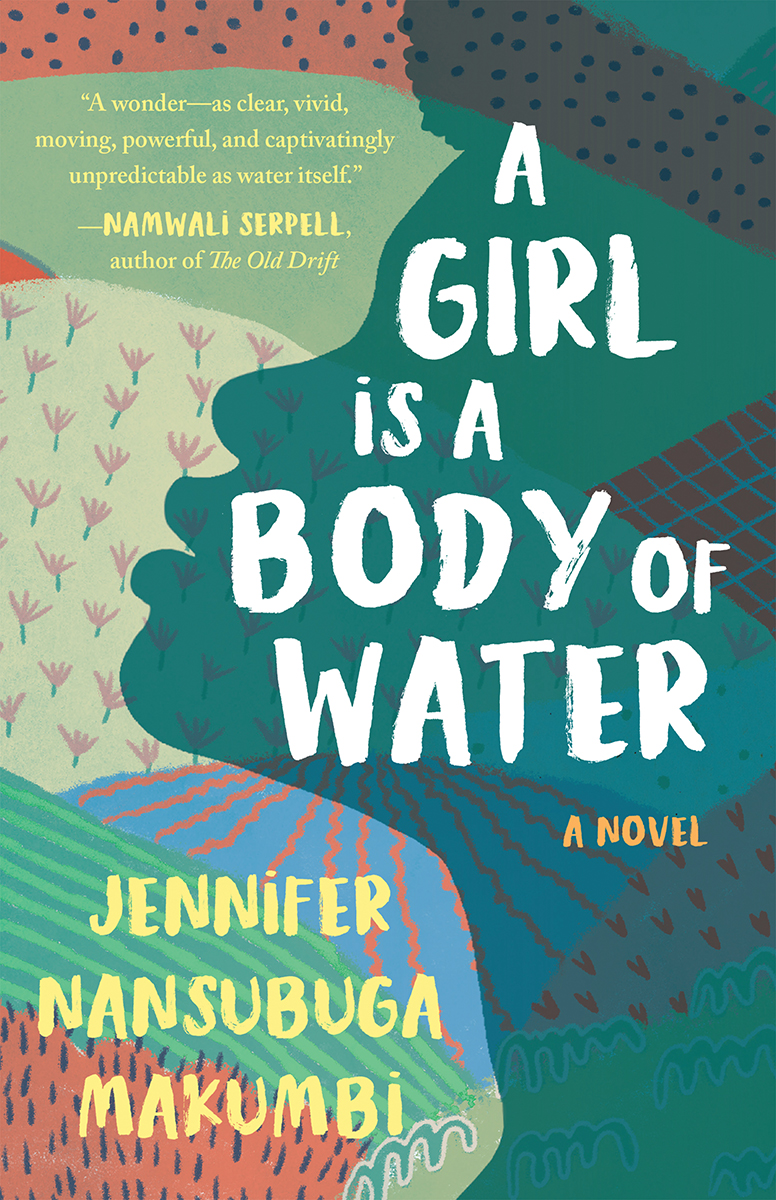
A Girl Is a Body of Water
فرمت کتاب
ebook
تاریخ انتشار
2020
نویسنده
Jennifer Nansubuga Makumbiناشر
Tin House Booksشابک
9781951142056
کتاب های مرتبط
- اطلاعات
- نقد و بررسی
- دیدگاه کاربران
نقد و بررسی

July 1, 2020
A young girl comes of age in 1970s Uganda. Makumbi's latest book is a luminous and sprawling bildungsroman set in Uganda under the rule of Idi Amin. Kirabo, a smart and willful girl, is growing up with her grandparents in a rural village. Her father is off in the city, and Kirabo doesn't know who her mother is. Worse, no one is willing to tell her. Kirabo starts visiting the local witch, Nsuuta, hoping to learn something. There's another issue to address, too. Sometimes Kirabo seems to fly outside her own body, to observe herself from without. "Listen," Nsuuta tells her. "You fly out of your body because our original state is in you." What is that original state? Nsuuta tells Kirabo that it was "the way women were in the beginning," when "we were not squeezed inside, we were huge, strong, bold, loud, proud, brave, independent. But it was too much for the world and they got rid of it." The novel is a magnificent blend of Ugandan folklore and more modern notions of feminism. Eventually, Kirabo finds herself admitted to an elite girls school, where she learns from the older pupils not to shrink inside herself but to take pride in herself and in her body. Kirabo is a wonderful character, as are her best friend and Nsuuta. But Sio, the boy in whom Kirabo takes an interest, never comes fully to life. Occasionally, dialogue between the characters can feel flat, as though the author were inserting her own political beliefs into their mouths. These are relatively minor flaws: As a whole, the novel is a vivid, rambling delight. Makumbi's prose can be musical and rhythmic or calmly informative, as her narrative requires. In its depiction of both singular characters and a village community, this book is a jewel.
COPYRIGHT(2020) Kirkus Reviews, ALL RIGHTS RESERVED.

July 6, 2020
Makumbi’s arresting bildungsroman (after Kintu) centers on a Ugandan woman growing up in the 1970s as she searches for answers about her mother. As a child, Kirabo lives in rural Nattetta with her paternal grandparents and is occasionally visited by her father, Tom, a successful businessman in Kampala. Though Kirabo is well-loved, she longs to know more about the mother who abandoned her as a baby. When Kirabo is 12, Nsuuta, the local witch and her grandfather’s lover, claims that Kirabo embodies “original state”: the vigor and strength all women possessed before these qualities were destroyed by culture and traditions. Nsuuta also advises Kirabo to avoid looking for her mother, in order to spare her the inevitable rejection from acknowledging a child born outside marriage. When her meetings with Nsuuta are discovered, Kirabo’s grandmother sends her to Kampala, but Tom’s wife refuses to raise another woman’s child, leading Tom to send her to a girls’ boarding school where she thrives intellectually, suffers from loneliness, and falls in love. Kirabo, a strong, empathetic protagonist, reveals a society where women are routinely pitted against one another or silenced. This beautifully rendered saga is a riveting deconstruction of social perceptions of women’s abilities and roles.

Starred review from August 1, 2020
Set in 1970s Uganda, this bewitching coming-of-age novel introduces readers to a smart, feisty heroine, Kirabo Nnamiiro, and her complicated extended family. Though deeply loved by the grandparents who are raising her, Kirabo yearns for knowledge of the woman who abandoned her at birth. She consults Nsuuta, the village seer, who recognizes in Kirabo evidence of the local myth of the first women; fiercely independent, changeable, and powerful, like the water from which they came. An exceptional student, Kirabo moves to Kampala, where her father has agreed to finance her education. It is here, as an observer of her unhappy, powerless stepmother and under the influence of her self-sufficient, modern aunt Abi, that Kirabo will learn to unravel the complexity of her lineage and to navigate the rapidly changing world for women in a modern Uganda. Though the novel is rife with the everyday fact of disappointment and loss, the overall atmosphere is one of joyous, feminist abandon. VERDICT A recipient of the Windham-Campbell Prize for Fiction and the Kwani Manuscript Project for her first novel, Kintu, UK-based Makumbi is a mesmerizing storyteller, slowly pulling readers in with a captivating cast of multifaceted characters and a soup�on of magical realism guaranteed to appeal to fans of Isabel Allende, Julia Alvarez, or Yaa Gyasi's Homegoing.--Sally Bissell, formerly with Lee Cty. Lib. Syst., Fort Myers, FL
Copyright 2020 Library Journal, LLC Used with permission.

Starred review from September 1, 2020
Makumbi's previous works, including her masterful debut Kintu (2017), awed readers and garned awards, and her new novel does not disappoint. Billed as the companion to Kintu, this is a modern retelling of the tale of Uganda's mythical first woman, Kirabo. At 12 years of age, Kirabo is strong-willed, loved, and well cared for by doting grandparents in the rural village of Natteta, but as she approaches her teen years, her mother's absence begins to overwhelm her. In her attempt to learn more about her mother, Kirabo seeks help from the local witch and sets in motion the unraveling of the knots of history, friendships, family, and love that tie together all the women in her life. With each new work, Makumbi cements her position as a writer of great influence in our time and for future generations. Featuring a tightly woven narrative, carefully crafted dialogue, and multidimensional characters, all shown through an unashamedly Ugandan lens, A Girl Is a Body of Water is a powerful novel celebrating and critiquing mwenkanonkano (feminism) and the highs and lows and everything in-between of being a woman.(Reprinted with permission of Booklist, copyright 2020, American Library Association.)

























دیدگاه کاربران